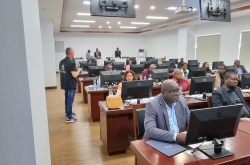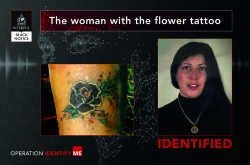UNITED NATIONS, New York – With an increased risk of foreign fighters returning home or joining other conflicts following the liberation of Da’esh-held territories transforming the global threat landscape, international security was high on the agenda during discussions between the heads of the United Nations (UN) and INTERPOL.
In their first meeting, Secretaries General António Guterres and Jürgen Stock addressed areas of common concern where the two organizations can further streamline and strengthen their cooperation for the benefit of their member countries.
Areas for enhanced collaboration have been identified in a number of UN resolutions, including protecting critical infrastructure, preventing foreign terrorist fighter travel as well as combating all forms of transnational crime such as maritime piracy, human trafficking and drug smuggling.
In addition, there are currently nearly 600 valid INTERPOL-UN Special Notices for entities and individuals who are the targets of UN Security Council Sanctions Committees.
Secretary General Stock said today’s complex security landscape combined with increased pressure on resources highlighted the value of INTERPOL’s communications system and databases as a ‘global early warning system’.
“We are all too well aware of the threats which face us, and indeed for the foreseeable future, these threats are increasing rather than diminishing.
“The partnership between INTERPOL and the UN provides a unified response in supporting law enforcement and the maintenance of international peace and security,” said Mr Stock.
Among the tens of millions of pieces of data held in INTERPOL’s global databases accessible to law enforcement across its 192 member countries, are more than 43,000 foreign terrorist profiles.
In 2017, law enforcement officers around the world conducted some 4.5 billion searches against INTERPOL’s databases resulting in one million ‘hits’, with each match potentially a key piece in an investigation.
INTERPOL has a long history of cooperation with the UN which was formalized in a 1997 agreement. The Office of the Special Representative of INTERPOL to the United Nations in New York was opened in 2004, which has further strengthened the relationship between the two organizations.
Related news

Border security threats focus of STOP operations in Africa
8 December 2023








